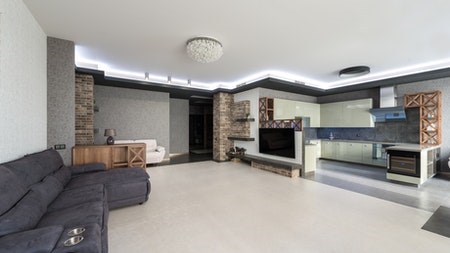Is it cheaper to buy an unrenovated property and renovate it or buy a ready-to-live property? This is a great question from one of my readers. I will answer this question with a brief discussion on property renovations. The unsurprising answer: it really depends! It depends on the price you pay, the amount you spend on renovations and what it will be worth after renovations. It also depends if you have capital to spend on renovations or not.
Renovations refer to alterations or improvements made to a property’s structure, interior, or exterior. Examples include painting, upgrading kitchens or extending the size of a house. Property investors perform renovations to increase the property value and increase potential rental income.
The first principle is you should never spend a cent on a renovation unless you can get it back in the form of a higher valuation/sale price. Ideally, you would want the renovation to add more value than it costs. E.g. If you spend R10 000 on renovations that increase the property value by R20 000, you have doubled your investment.
The first principle is you should never spend a cent on a renovation unless you can get it back.
Perhaps your sole focus is the rental yield and not capital growth. If that is the case, you should determine how much the renovation will increase the rent and translate that to a payback period. If spending R10 000 on renovations will increase the rental by R500 per month, your money will be paid back in 20 months (R10k/R500 increased rent = 20 month payback period).
The reason renovations may be cheaper than a ready-to-live property is you can negotiate harder on the purchase price because the seller and agent also understand the extent of renovations needed. In my first investment property, I negotiated the purchase price down from R720k to R660k. After spending R40k on renovations, the property is was valued at R740k. So I got 2x every rand I spent on renovations.
However, there are some good reasons to avoid properties that need to be renovated:
- Requires capital
- Renovations are time-consuming and time is money
- Risk of underestimating renovation costs or architectural constraints
Renovations require capital and capital is a precious commodity in the property game. The opportunity cost of the capital needs to be evaluated. For example, you could instead buy another property with a 100% loan and use that money to pay for transfer costs.
Renovations are time-consuming and time is money. This is a crucial point. Every month it takes to renovate a property is a month without a tenant paying rent. Every month without a tenant is a month of bond instalments, levies and taxes you have to pay out of your own pocket. This is the biggest expense that people miss when calculating renovation costs.
If you are planning to perform extensive renovations that affect to the structure of a property such as knocking down walls to create open-plan areas or building additional rooms, it is absolutely important that you take an architect with you to view the property BEFORE you sign an OTP. You don’t want to find yourself in a position where you buy a property and learn that the changes you want to make can’t be done due to building constraints or regulations.
Opportunity cost is the return you could achieve on your capital if you pursued alternative investments.
Parting shot
Renovations can add tremendous value to property investments in the form of equity expansion and increased rental income. After using renovations as an investment tool, I believe buying a ready-to-live property is a much better option if you can get it at a good price. I say this purely from the perspective of a young person with limited capital. You don’t need to spend capital on renovations and you don’t have to pay the bond yourself every month the renovations are underway. If I could do things different, I would negotiate hard on a ready-to-live property and use my excess capital to expand my property portfolio.
Article reference: http://www.forinterestsake.com/is-it-cheaper-to-buy-an-unrenovated-property-and-renovate/
Writer : Kelin Pottier





